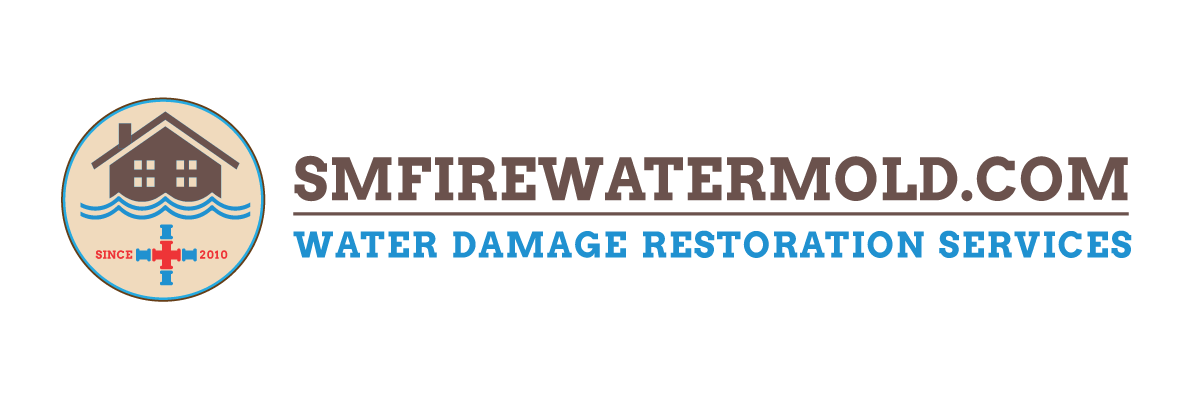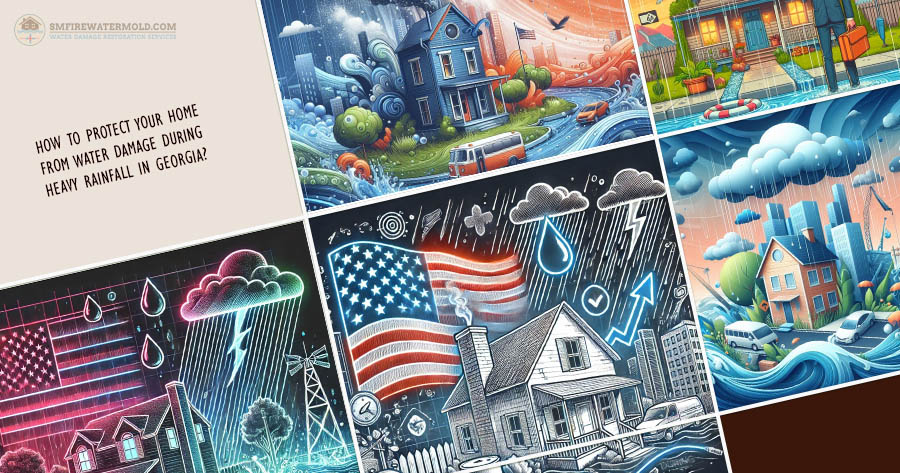Floods and the water damage they bring to the US and businesses
Since 2000, the United States has experienced an increasing number of flood days (and water damage), averaging over 300 per year. These floods cause substantial financial losses, amounting to billions of dollars annually. For instance, in 2020 alone, the financial toll from flooding in the U.S. exceeded $17 billion. Georgia, being prone to severe weather conditions, has also witnessed significant flooding, particularly during hurricane seasons. Hurricane Helene, for example, caused an estimated $6.46 billion in damage in the state. Here are some statistics on business losses due to flooding in Georgia over the past few years:
- 2020: Flooding caused by Hurricane Sally resulted in significant damage, with estimated losses to businesses and infrastructure reaching $1.2 billion.
- 2021: Severe storms and flooding led to $500 million in damages to businesses across Georgia.
- 2022: Multiple flooding events throughout the year caused $800 million in economic losses for businesses in the state.
- 2023: Heavy rainfall and flooding resulted in $1 billion in damages to businesses and infrastructure.
- 2024: As of November 1, 2024, Georgia has experienced $1.5 billion in business losses due to flooding.
Given these statistics, it is crucial for homeowners to take proactive measures to protect their properties from water damage during heavy rainfall.
8 Advices How to Protect Your Home from Flood Damage During Heavy Rainfall in Atlanta and the Metro Area
1. Maintain Gutters and Downspouts
Regular maintenance of gutters and downspouts is essential to prevent blockages that can lead to water overflow. Ensure that gutters are clean and free from leaves, twigs, and other debris. Downspouts should direct water at least three feet away from your home’s foundation. Installing gutter guards can help reduce the frequency of cleanings. Properly maintained gutters and downspouts help prevent water from seeping into your basement or crawl space, which can lead to significant damage over time.
2. Install Sump Pumps
Sump pumps are invaluable in preventing basement flooding by removing excess water that accumulates during heavy rainfall. Ensure your sump pump is in good working condition and test it regularly. It’s also advisable to have a backup power source, such as a battery backup or generator, to ensure the sump pump operates during power outages. This precaution is particularly important in areas prone to severe weather and heavy rains.
3. Seal Basement Cracks
Inspect your basement for any cracks or gaps in the walls and foundation. Even small cracks can allow water to enter your home. Use a high-quality waterproof sealant to seal these cracks and prevent water infiltration. Additionally, consider applying a waterproof coating to the walls and floors of your basement to provide an extra layer of protection. Taking these steps can save you from costly repairs and protect your home from water damage.
4. Landscape for Proper Drainage
Proper landscaping can play a significant role in directing water away from your home. Ensure that the ground around your home slopes away from the foundation. This grading helps prevent water from pooling near your house. Additionally, planting native vegetation can help absorb excess water and reduce runoff. Consider installing a rain garden or using mulch to improve soil absorption. These landscaping strategies not only enhance the aesthetic appeal of your property but also provide effective flood prevention.
5. Install Window Well Covers
If your home has basement windows with window wells, it’s essential to cover them to prevent water accumulation. Window well covers come in various materials, including plastic and metal, and can be easily installed. Ensure the covers are securely fastened and properly sealed. This simple step can significantly reduce the risk of water seeping into your basement through the windows, protecting your home from potential water damage.
6. Elevate Electrical Systems
Elevating electrical systems is a crucial step in flood prevention. Ensure that electrical sockets, switches, and other electrical components are installed at least one foot above the potential flood level. This precaution helps prevent electrical hazards and damage to your electrical systems during a flood. Additionally, consider elevating appliances such as washers, dryers, and water heaters to minimize the risk of damage.
7. Use Sandbags and Flood Barriers
In anticipation of heavy rainfall and potential flooding, consider using sandbags and flood barriers to protect your home. Sandbags can be placed around the perimeter of your property to divert water away. Flood barriers, which are more advanced, can be installed to provide an additional layer of protection. Both methods are effective in preventing water from entering your home and causing damage.
8. Create an Emergency Plan
Having an emergency plan in place is crucial for protecting your family and property during a flood. Ensure all family members know the evacuation routes and safe areas. Keep important documents, such as insurance policies, birth certificates, and passports, in a waterproof container and in an easily accessible location. Create an emergency kit that includes essential items such as food, water, medications, and first aid supplies. Regularly review and practice your emergency plan to ensure everyone is prepared.
Protecting your home from water damage
Protecting your home from water damage during heavy rainfall requires proactive measures and regular maintenance. Follow these tips to safeguard your property and ensure the safety of your loved ones. For professional water damage restoration and flood damage restoration services in the Atlanta Metro area, contact Smfirewatermold. Our experienced team provides comprehensive water restoration services, including basement and crawl space flood cleanup, mold remediation services, emergency flood damage services, and emergency plumbing after flood damage.
Act now to protect your home and avoid costly repairs in the future.

